Growth Mindset: Mistakes Grow Your Brain
This year, in connection with the school wide focus toward Service Learning, the Fifth Grade is embarking on a year-long exploration of Growth Mindset—the belief that a person’s abilities are not fixed, but rather developed over time through a process of challenging tasks, concerted effort, feedback, and reflection. Psychologist Carol Dweck first launched the concept of Growth Mindset, and current educational research supports this philosophy. In fact, the most significant factor that impacts a student’s success in school is not IQ, but rather the student’s own belief in his or her ability to succeed.
We are taking time each Thursday in our Brain Game periods to learn about how our brain works and how we can develop our ability to flex and strengthen our brain muscles, both in and out of school. Growth Mindset also figures prominently in our academic subjects such as writing and math where our classroom is becoming a space in which mistakes are expected and normalized. “Mistakes make our brain grow,” is not only one of our mantras this year—it’s a fact that we learn more when we have to think deeply and problem solve. To this end, students are provided with learning activities that encourage them to persevere even when it might feel uncomfortable, or when they might be unsure. The students and I are working together to create a supportive environment where collaboration and encouragement foster a growth mindset.
During Brain Game periods, students participate in myriad activities from watching and discussing short video clips to hands-on activities like making a model of the brain. Last week, during our extended Wednesday advisory, we learned about how the brain of a five-year-old has more synapses than an adult’s does since every moment and every interaction is having an impact on brain development—and then we spent a period with the Kindergarten to observe the way they learned a new pattern through beading a bracelet with colored beads. This week, students will be setting individual goals for themselves and reflecting specifically on their own academic and social challenge areas.
Here are the video clips we’ve watched and discussed so far. Hope you enjoy them!
Cheers!
Jilly
(On neuroplasticity)
https://www.youtube.com/watch?v=5KLPxDtMqe8
(On the brain and math)
(On the connection the brain has to the internet)
https://www.youtube.com/watch?v=zLp-edwiGU
